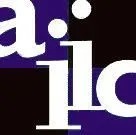加拿大口译员对延期采购协议Say No
2024年10月25日 10:00 山西
2024
加拿大口译员
拒绝延期采购协议
Interpreters Reject

本期导读
如果出租车在红灯前停下的时间段里,乘客拒绝付费,大家觉得合理吗?加拿大翻译局新修正案中将 “大幅改变 ”自由职业者提供服务的 “条件”,试图让自由职业者在议会程序暂停时在翻译室等候,而不计算他们翻译时长。一起来了解一下吧!
Part1
加拿大口译员拒绝延期采购协议
According to a press release shared with Slator by the International Association of Conference Interpreters (AIIC Canada), 75% of accredited freelance official language interpreters who work in parliament have refused to sign an extension of the procurement arrangement they entered into last year. The contract expired on June 30th, 2024.
根据国际会议口译员协会(AIIC Canada)发布的新闻稿,议会中 75% 经认证的自由职业口译员拒绝在 2024 年 6 月 30 日到期的采购安排延期合同上签字。 Interpreters take issue with the decision made by Canada’s Translation Bureau (TB) to extend for a second year the open contract with substantive changes. The extension option was included a year ago provided that, upon renewal, the original contract conditions still stood.
口译员们反对翻译局(TB)将合同延长第二年并做出重大改动。最初列入延期选项时有一项谅解,即合同条件保持不变。
The press release says the contract extension includes an amendment that accredited freelancers “believe would substantially change the conditions under which they provide their services.” It also says that the TB warned that even if the interpreters did not sign, the amendment would be applicable to all types of contracts.
新闻稿指出,新修正案将 “大幅改变 ”自由职业者提供服务的 “条件”。TB 还警告说,即使没有他们的签字,修正案也将适用于所有合同。
The contract change includes a new rule that would pause the remunerated working clock for interpreters every time a parliamentary proceeding pauses in the House or Senate for votes or for any other reason.
合同变更包括一项新规则,即每当众议院或参议院的议会程序因投票或任何其他原因暂停时,口译员的带薪工作时间将暂停。
A new rule that would pause the remunerated working clock for interpreters every time a parliamentary proceeding pauses.
新规则规定,每当议会程序暂停时,口译员的带薪工作时间就会暂停。
Nicole Gagnon, spokesperson for AIIC, said in the press release that “many freelancers regard the TB’s actions as a breach of contract and an unacceptable change to the way interpreters work, especially in parliament. ‘Stop-and-go’ interpreting simply does not exist anywhere in our profession. Yet the TB is trying to keep freelancers waiting in the booth during pauses in parliamentary proceedings without counting their time. It’s like refusing to pay the taxi driver when his vehicle is stopped at a red light.”
AIIC 发言人 Nicole Gagnon 在新闻稿中说:“许多自由职业者认为,翻译局的行为违反了合同,是对口译员工作方式的不可接受的改变,尤其是在议会中。在我们的行业中,根本不存在‘走走停停’的口译。然而,翻译局却试图让自由职业者在议会程序暂停时在翻译室等候,而不计算他们翻译时长。这就好比当出租车司机的车在红灯前停下时,他拒绝付钱给出租车司机。

Part2 A Contentious History 有争议的历史
According to the press release, the Office of the Procurement Ombudsman announced on July 11, 2024, that it is reviewing complaints from dozens of freelance interpreters about the TB and the Public Services and Procurement Canada (PSPC) agency.
采购监察员办公室于 2024 年 7 月 11 日宣布,它正在审查自由职业口译员对翻译局 (TB) 和加拿大公共服务与采购部 (PSPC) 的投诉。
For several years, the TB has made changes to the working conditions of translators and interpreters (see for example Slator’s coverage from 2016). The common thread is that the measurements taken by the government agency seem to always meet with criticism from other official entities and protests by linguists and labor unions.
多年来,加拿大翻译局一直在改变笔译和口译人员的工作条件,但经常遭到官方实体的批评以及语言学家和工会的抗议。 The shortage of qualified interpreters was once again mentioned in this press release. The changes in working conditions interpreters object to, according to AIIC, also mean that fewer accredited interpreters will work in Parliament. As a survey conducted by the organization concluded, this issue is compounded by the impending retirement of close to half of interpreters serving in parliamentary sessions. 新闻稿强调了合格口译员持续短缺的问题。AIIC 指出,最近的变化很可能会减少议会中经认可的口译员人数,而目前近一半的口译员即将退休,使这一问题更加严重。 On this topic, Gagnon said in the press release that “The shortage of accredited interpreters has become an entrenched fact of life that the TB has been struggling with for years. That’s why it is hard to understand its behavior if it results in fewer accredited freelancers being willing to work in Parliament.”
盖格南对此评论说,口译员短缺是一个长期存在的问题,而翻译局的行动只会进一步阻碍自由职业者在议会工作。
The agreement extension impasse is the latest in a series of contentious clashes between accredited interpreters and the TB. Earlier in June 2024, and represented by the Canadian Association of Professional Employees (CAPE), over 90% of parliamentary staff interpreters signed a petition against what they call uncompensated additional work assigned since February 2024 by the TB.
目前的分歧是口译员与翻译局之间持续冲突的一部分。2024 年 6 月,由 CAPE 代表的超过 90%的议会工作人员口译员签署了一份请愿书,反对翻译局自 2 月以来分配的无偿额外工作。
The rationale presented by the TB was that the interpreters had extra time during their hybrid shifts, not taking into account that interpreters need to prepare for their assignments, according to CAPE representatives.
据 CAPE 的代表称,翻译局为额外的工作辩解,声称口译员在混合轮班期间有额外的时间,而忽略了所需的准备时间。
原文链接:
https://www.atanet.org/member-news/newsbriefs-july-31-2024/
特别说明:本文内容选自American Translators Association官网,仅供学习交流使用,如有侵权请后台联系小编删除。
添加助教

– END –

